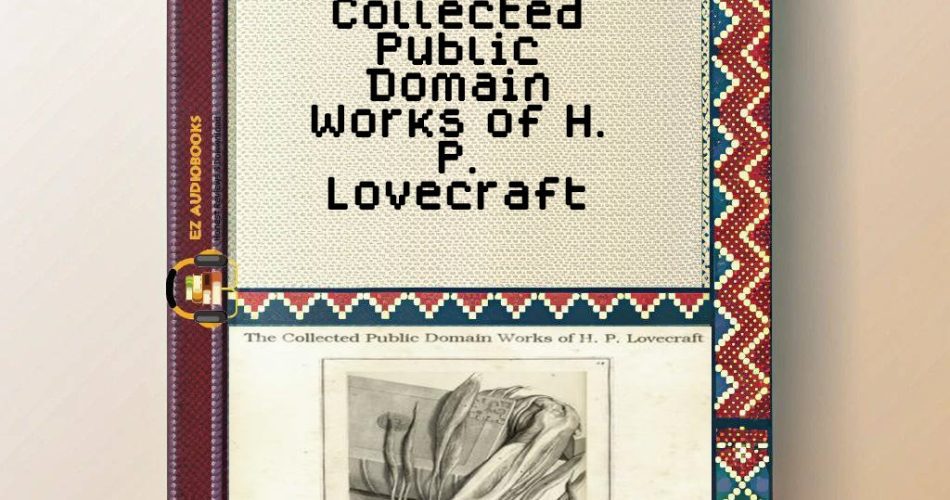Audiobook Sample
Listen to the sample to experience the story.
Please wait while we verify your browser...
- Title: Collected Public Domain Works of H. P. Lovecraft
- Author: H.P. Lovecraft
- Narrator: LibriVox Volunteers
- Length: 07:40:35
- Version: Abridged
- Release Date: 01/01/2016
- Publisher: LibriVox
- Genre: Mystery, Thriller & Horror, Horror
- ISBN13: SABLIB9782036
Let me tell you about the time I first encountered Lovecraft’s cosmic horror. It was during a late-night recording session for my ‘Future of Stories’ podcast, where I was comparing text vs audio adaptations of weird fiction. The moment a volunteer narrator whispered ‘Ph’nglui mglw’nafh Cthulhu R’lyeh wgah’nagl fhtagn,’ my studio lights flickered (coincidence? I think not) and I understood the unique power of audio to deliver existential dread.
This LibriVox collection is a treasure trove of 24 public domain stories that showcase Lovecraft’s evolution as the architect of cosmic horror. What makes this audiobook experience particularly fascinating is how the multiple volunteer narrators (a signature LibriVox approach) create a patchwork quilt of interpretations. Some lean into the antiquarian academic tone Lovecraft favored, while others embrace full-throated theatricality when describing his ‘non-Euclidean geometries’ and ‘cyclopean ruins.’
Here’s what makes this interesting: Lovecraft’s prose, often criticized as purple in print, transforms in audio. The baroque descriptions that might feel cumbersome to read become hypnotic when spoken aloud. I found myself particularly drawn to the readings of ‘The Call of Cthulhu’ and ‘The Colour Out of Space,’ where narrators masterfully handle Lovecraft’s signature technique of gradual revelation – that slow drip of information that makes your neck hairs stand at attention.
The cultural impact here is undeniable. As I discussed in my Webby Award-winning piece on horror’s digital evolution, Lovecraft’s public domain status has allowed his mythos to become a living, breathing entity across media. This audiobook represents ground zero for that phenomenon. The audio format particularly enhances his themes of forbidden knowledge – there’s something deliciously transgressive about having these terrifying secrets whispered directly into your earbuds during your morning commute.
Now, let’s break this down quality-wise. Being volunteer-read, the performances vary from surprisingly professional to charmingly amateur. The audio quality reflects LibriVox’s crowdsourced nature – you’ll hear the occasional page turn or background noise. But here’s my hot take: these imperfections almost enhance the experience. There’s an authenticity to hearing Lovecraft’s nightmares recounted by everyday voices rather than polished studio narrators. It mirrors how his myths supposedly spread – through fragmented accounts by unreliable witnesses.
For my BookTok followers who’ve asked about ideal listening conditions: pair this with noise-canceling headphones during a thunderstorm. Trust me, when you’re hearing about the ‘blasphemous fish-frogs of Y’ha-nthlei’ as rain lashes your windows, you’ll achieve peak Lovecraftian immersion. And at the unbeatable price of free? That’s cosmic horror even a Miskatonic University grad student can afford.
Compared to commercial Lovecraft audiobooks, this collection offers raw, unfiltered access to his foundational texts. While it lacks the production values of, say, the Penguin Audio editions, it makes up for it in breadth and accessibility. It’s the audio equivalent of discovering moldering manuscripts in your great-uncle’s attic – complete with all the eerie charm that implies.
To my fellow digital storytellers: pay attention to how these narrators handle Lovecraft’s infamous ‘unnameable’ horrors. There’s a masterclass here in using voice to suggest what cannot be shown. The best performances understand that the true horror lies in the listener’s imagination – they provide the unsettling framework, we construct the nightmares.
Would I recommend this? Absolutely, but with two caveats: First, understand you’re getting a time capsule of early 20th century horror with all its problematic elements intact. Second, embrace the variability as part of the charm. This isn’t a slick corporate product – it’s a labor of love by fellow horror enthusiasts, and that passion shines through.
Stay curious (but maybe leave the lights on), Sophie
Sophie Bennett

